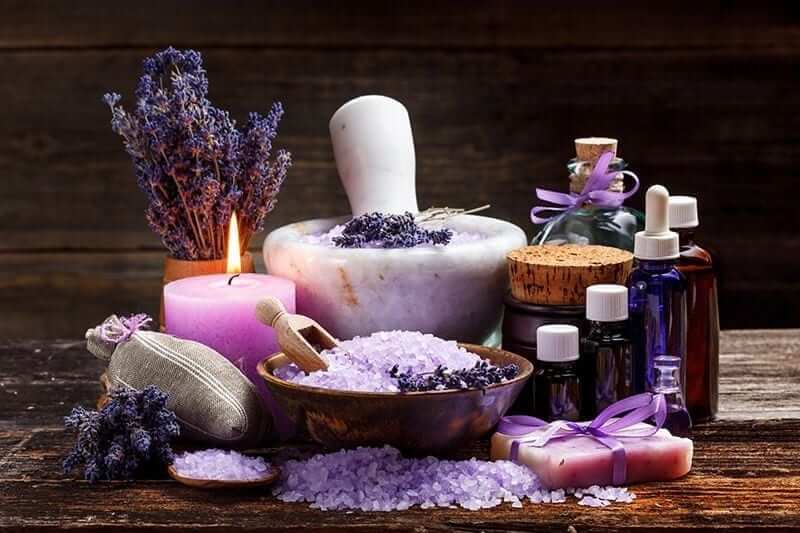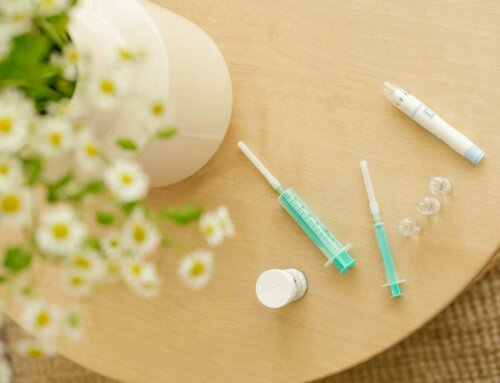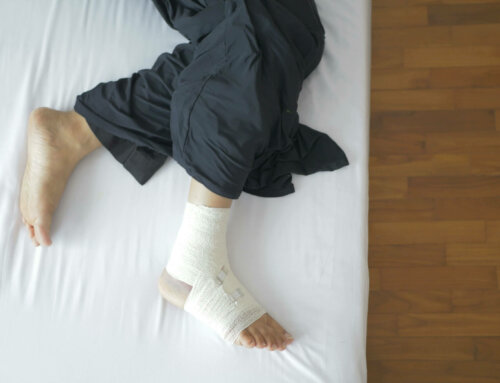Diabetes continues to gain strength in the United States and around the world. The goals for people with diabetes remains maintaining blood sugar control, reducing stress and minimizing the potential of developing health related complications. Many people with diabetes find that the combination of traditional Western medicine with alternative therapies, such as massage, aromatherapy and essential oils are helpful.
- Since the days of Hippocrates and scented baths, aromatherapy has been used for relaxing and healing purposes. Essential oils are made from distilled flowers, roots and bark which create the potent scent from the plant. Essential oils have been used for bathing, massaging, healing wounds and reducing stress. Aromatherapy became well-known in the 1940s when a French chemist used lavender essential oil to heal his own burn wounds and gangrene. Since that time, ongoing research has been done with regard to the use of essential oils for a variety of health conditions. This includes diabetes as well as diabetes-related health conditions such as neuropathy and cardiovascular problems. Today clinical aromatherapy refers to the use of essential oils that are inhaled or diluted and applied to the skin to try to treat a variety of symptoms. Aromatherapy is used for wounds, infection, insomnia, depression and more.
- People with diabetes may have difficulty sleeping or suffer from stress related to ongoing self-management of the condition. Lavender essential oil has been show to boost a person’s mood and aid insomnia. Scents such as sandalwood, rose and chamomile can be relaxing and help reduce stress. For people with diabetes who experience fatigue, the scent of peppermint, basil, geranium and lemon can be invigorating.
- Essential oils are strong and should always be diluted in carrier oil before applying them topically. The usual mixture is 2 drops of essential oil in a teaspoon of carrier oil. People with diabetes who have chronic skin conditions or ulcers may find certain oils beneficial because they have antibacterial and antiseptic quality. Recommended oils may include lavender, tea tree, eucalyptus and sandalwood. Diluted oils should be applied to sterile gauze. Always consult with your doctor before using any type of essential oils on your skin.
- Stress and diabetes are often associated with skin conditions. For dry skin, your doctor might recommend applying a simple, effective moisturizer such as Aquaphor. If the doctor is familiar with essential oils, they may suggest you try aromatherapy to help reduce stress instead of adding another medication. Place 3 drops of undiluted oil on a cotton ball then breathe in slowly for no more than 5 minutes. Oils used to minimize stress include rose, sweet marjoram, lavender and mandarin. These oils can also be used topically in professional massage techniques to help reduce anxiety, improve circulation and minimize the pain associated with diabetic neuropathy.
- A recent study showed that “exposure to essential oils for a short period of time can be relaxing and lower blood pressure and heart rate. Daily prolonged exposure can actually have the opposite affect which means an increase of heart rate and blood pressure”. This suggests using essential oils in moderation and checking with your physician, especially if you have heart disease.
- It is best to combine traditional medicine with alternative therapies, as recommended by your regular physician. Never stop taking medications or insulin without first consulting with your doctor.
Aromatherapy may be beneficial for people with diabetes when used with traditional medical approaches. Consult with your physician before starting any program that involves essential oils and aromatherapy. From reducing stress to healing wounds and stabilizing blood sugar, essential oils can be helpful for some people with diabetes.







Leave A Comment